Does Fish Oil Raise Creatinine?
Omega-3 fatty acids are essential for our health, but too much of a good thing can have negative consequences.
Some research has suggested that omega-3 supplements may lead to negative side effects such as heartburn, diarrhea, or nausea. This article is all about omega-3s - how they might affect renal function and what you should know before taking them.
Our bodies need a balanced amount of nutrients in order to stay healthy and functioning properly; so it's important to be aware of potential risks associated with any supplement you're considering taking.
While there is some evidence linking omega-3s to better kidney outcomes, more research needs to be done before we can come to any definite conclusions about their safety and benefits.
In this article, we'll take an in-depth look at how omega-3s may impact your kidneys and what precautions you should take if you decide to add these supplements into your routine regimen and CKD Diet plan.
As a Registered Dietitian with over 25 years of experience in renal nutrition, I help individuals with Chronic Kidney Disease (CKD) understand the benefits of essential nutrients like omega-3 fatty acids.
My recommendations are based on evidence-based guidelines to ensure that CKD patients can safely incorporate fish oil into their diet to support heart and kidney health. At Renal Diet HQ, I provide expert, research-backed advice on using omega-3s to help manage inflammation and promote overall well-being in those with kidney disease.

Jump to:
- What Is Omega-3?
- Benefits Of Omega-3 For Kidney Health
- Can Fish Oil Damage Your Kidneys?
- Does Fish Oil Increase Creatinine?
- Potassium And Omega-3
- Omega-3 And IgA Nephropathy
- Recommended Dosage Of Omega-3 For Kidney Patients
- Herbal Remedies And Omega-3
- Natural Solutions To Omega-3 Side Effects For Kidney Patients
- Best Omega-3 For Kidney Disease
- FAQs for Does Fish Oil Have Creatinine?
- If You Have CKD, Make Sure To Get Enough Omega-3
What Is Omega-3?
Omega-3 is an essential fatty acid that can be found in various foods, such as fish, flaxseed, and walnuts. It has many benefits, including reducing the risk of cardiovascular disease and helping with cognitive functioning. In this section we’ll discuss the sources and benefits of Omega-3 in more detail.
For More Recipes and Ideas --->> Get Your Free Meals and Recipes That Are Perfect for Pre-Dialysis Diets, Pre-Dialysis with Diabetes, or Dialysis Diets.
Sources Of Omega-3
Omega-3 fatty acids are essential for good health and can be found in a variety of foods. They are commonly found in fish such as salmon and anchovies.
Plant based sources, such as flaxseed, chia seeds, walnuts, and hemp hearts offer vegan options that are kidney friendly and provide the same health benefits as dietary supplementation with fish oil. These are all important foods to eat for CKD Health.
For those who don't eat seafood or animal products, these plant-based sources make it easier to get your daily omega-3 intake without needing to take a supplement. Eating a balanced diet including omega 3s from various food sources is an easy way to ensure you’re getting all their goodness!
Benefits Of Omega-3
Fish oil and omega-3 fatty acids supplementation go hand in hand, as the biggest part of fish oils are omega-3s, because they are derived from fish oil.
These fatty acids are healthy and have many beneficial effects for a majority of reasons, such as maintaining one’s energy levels, lowering triglycerides, having anti-inflammatory effects, cardioprotective effects and can improve memory and symptoms of some mental illnesses.
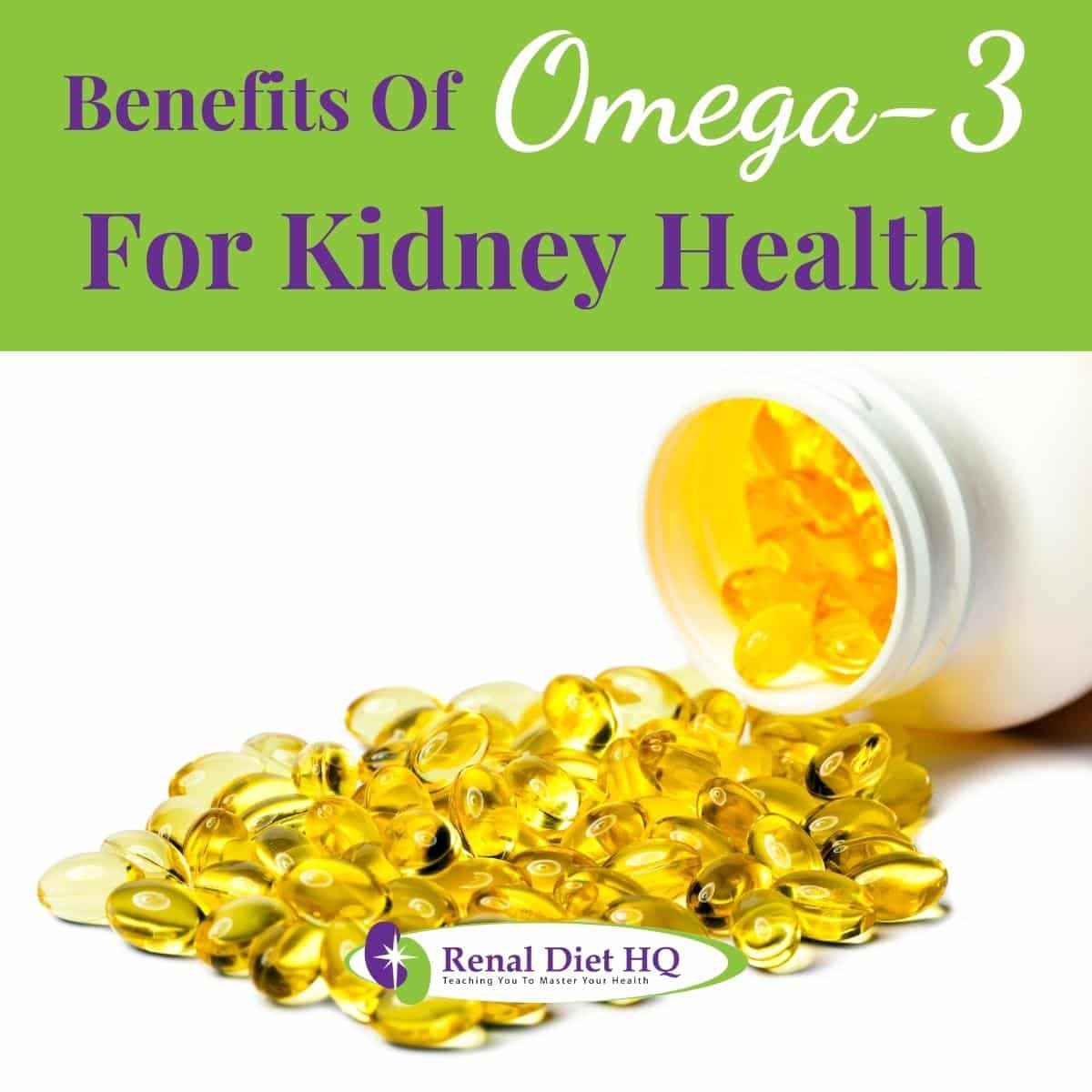
Benefits Of Omega-3 For Kidney Health
The following are the three key benefits of Omega-3 for kidney health. Take these steps to improving kidney health.
- Omega 3 fatty acids have been found to reduce inflammation, which can help improve overall kidney health.
- Omega-3s have been found to reduce proteinuria, which is a common symptom of kidney diseases.
- Overall, it can help reduce the risk of further complications and even help slow the progression of kidney disease. This can further help prevent further decline of kidney function in patients with CKD, and reduce risk of developing end-stage renal disease.
While the benefits of omega-3s for kidney health are undeniable, it's important to note that there are also potential side effects of fish oil to consider.
Therefore, it's best to speak to a healthcare professional before adding omega-3s to your diet to ensure that it's safe for you.
Reduced Inflammation
When it comes to maintaining healthy kidneys, omega-3 polyunsaturated fatty acids are an essential part of the equation. A diet rich in these beneficial fats can reduce renal inflammation and improve overall kidney function. Let's take a closer look at how omega-3s can help keep your kidneys functioning optimally!
The anti-inflammatory properties of omega-3s make them particularly helpful for those with chronic kidney disease stage 3 or higher, or other inflammatory conditions.
Studies have shown that supplementing with fish oil may be effective at reducing markers associated with renal inflammation and improving symptoms related to renal diseases like glomerulonephritis.
However, further research is required to better understand the effects of omega-3s in renal inflammation for people with kidney disease. Hence, it's always best to discuss supplementation safety with your internal medicine doctor before adding any new products into your routine.
Set smart goals for chronic kidney diseases, so that you can have reduce inflammation.
Reduced Proteinuria
By now, we know that omega-3 polyunsaturated fatty acids can do wonders for our kidneys. But did you also know they can lead to reduced proteinuria? Proteinuria is an indicator of kidney damage and having a high amount of it in the urine may indicate potential renal problems and additional risk in patients.
It has been postulated that omega-3 fatty acids can help with improving blood pressure control, which is associated with lower levels of proteinuria. With these advantages, you'll be on your way to following a kidney dialysis diet meal plan.
Slow CKD Progression
Overall, it has been found that in sum, supplementation with omega-3 polyunsaturated fatty acids help slow the progression of chronic kidney disease to with reduced risk of end-stage renal disease.
This is important to know, especially for pre-dialysis CKD patients who want to prevent further decline in their kidney function. There are even some picnic meals for pre-dialysis CKD you can follow!
Can Fish Oil Damage Your Kidneys?
Kidney disease is complicated, so it's important to be aware of the potential risks of adding anything new to your diet such as starting omega-3 supplementation regardless of the chronic kidney disease stage.
It's been suggested that omega-3 supplementation can improve kidney function, but there are some potential adverse reactions to consider.
For patients with reduced renal function, taking too much omega-3 supplements can cause side effects like nausea, vomiting, and diarrhea as well as unpleasant taste in the mouth, or bad breath.
There's also the risk of developing an allergic reaction or developing high levels of mercury in the blood.
Other possible side effects include low blood pressure, bleeding risk, acid reflux, and high blood sugar. Hence, it's important to talk to your doctor before taking omega-3 if you have kidney disease.
With the right dosage, omega-3 can be a helpful supplement, but it's important to be aware of its risks in patients with reduced renal function.
If you find yourself a little stressed with this information, just know there are tips to help you reduce stress!
Does Fish Oil Increase Creatinine?
Fish oil contains omega-3 fatty acids. In this form, these fatty acids are contained in this version in two unsaturated forms: EPA (Eicosapentaenoic Acid) and DHA. Hence, fish oil is among the most popular sources of omega-3.
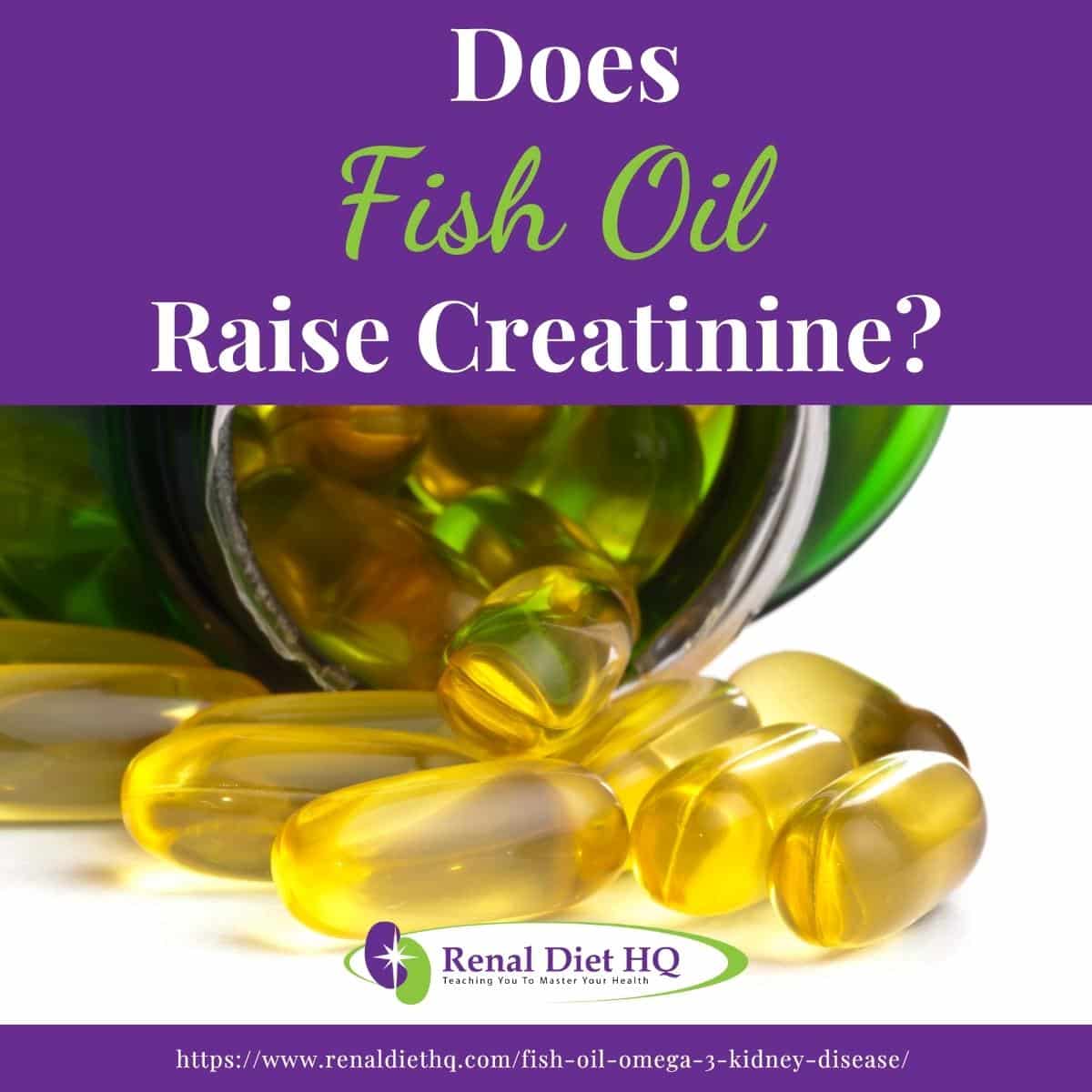
Fish Oil Dosage
The recommended dosage for fish oil and omega-3 supplementation specifically is around 500 milligrams a day of the combined EPA and DHA fatty acids.
Those with kidney disease or who know they have deficiencies in their usual diets, should consult a physician to get the best recommendation for daily dietary intake and supplement dosage to evaluate risk factors and maximize the health benefits, especially its cardioprotective effects, without risking ingesting too much, especially if you have coronary heart disease.
Fish Oil And Creatinine Clearance
When it comes to taking fish oil supplements, one of the most important things to consider is creatinine clearance. A higher creatinine clearance rate is indicative of better kidney function, as the kidneys are better able to eliminate creatinine, which is a waste product. You can learn more about creatinine lab values for kidney disease.
When it comes to the effects of fish oil on such parameters in patients with CKD, a current study has described that supplementation with fish oil in the short term or long term (months of supplementation) can increase creatinine clearance rate.
This can thereby lower the risk of progression to end stage renal disease, depending on patient factors such as length of period of supplementation. Make sure you take the time to understand how to avoid end stage renal disease.
However, make sure you talk to your physician before starting a new supplement regimen - they'll be able to provide guidance on dosage and timing so you get all the benefits without putting yourself at risk for further health complications.
Potassium And Omega-3
When it comes to the effects of omega-3 supplementation on potassium levels, there's a lot to consider. Omega-3 from natural sources such as fish products will contain high levels of potassium.
However, fish oil supplements contain no potassium, making them ideal for someone on a low potassium diet.
Still, it is also important to be aware of potential drug interactions that might arise from taking omega-3 supplements, as a lot of factors can affect potassium levels.
One way to ensure your body is getting all the nutrients it needs without consuming excess potassium is by consuming high-potassium foods fish, bananas, and leafy greens sparingly.
Taking care with what we consume will help us stay healthy and keep our kidneys functioning properly--something worth considering when managing our diets!
Omega-3 And IgA Nephropathy
IgA Nephropathy is a type of kidney disease that is caused by renal inflammation within the glomeruli, which are the tiny filters in the kidneys. It is one of the common causes of glomerulonephritis in the United States.
By understanding how omega-3 supplementation influence IgA Nephropathy, we gain insight into what type of lifestyle modification in patients with this disease should be taken to ensure optimal health outcomes for those who suffer from this condition.
Causes Of IgA Nephropathy
IgA nephropathy is a condition in which an antibody called immunoglobulin A (IgA) builds up in the kidneys, leading to inflammation and damage. The exact cause of IgA nephropathy is not fully understood, although a number of factors are thought to contribute to its development.
Infections caused by bacteria and viruses are believed to be a common cause of IgA nephropathy, as they can trigger the immune system to produce IgA antibodies.
A person may also be genetically predisposed to IgA nephropathy, meaning that if someone in their family has it, they are more likely to develop the condition. In some cases, the use of certain medications (commonly prescribed medications for CKD) or supplements can also contribute to the development of IgA nephropathy.
Omega-3 Benefits For IgA Nephropathy
Omega-3 fatty acids have been shown to have anti-inflammatory properties, which can help reduce the inflammation associated with IgA Nephropathy.
This can be demonstrate in decrease in inflammatory markers down the line. Omega-3 fatty acids can also help reduce proteinuria, which is the presence of protein in the urine that is a key symptom of IgA Nephropathy.
Additionally, fish oil omega-3 fatty acids can help reduce the risk of cardiovascular disease, which is a common complication of IgA Nephropathy.
Recommended Dosage Of Omega-3 For Kidney Patients
Taking omega-3 supplements can help kidney patients improve their renal function and reduce their risk of developing end stage renal disease (how to avoid end stage renal disease).
However, taking too much omega-3 acids can be dangerous and increase the risk of bleeding and other complications.
The recommended dosage for kidney patients is 1,500 to 3,000 mg of EPA and DHA combined daily divided into two or three doses.
It's important for kidney patients to monitor their side effects while taking omega-3 supplements and talk to their doctor if they experience any adverse reactions.
Potential Benefits
When it comes to kidney health, omega-3 fatty acid supplementation can be an essential part of a renal diet. Overall, the benefits of omega-3 supplementation boils down to slowing down further decline in kidney function. This is all important in understanding the signs and symptoms of kidney failure.
With significant potential benefits, it’s no wonder that omega-3 acids are recommended in therapeutic doses for those with kidney disease or who are at risk of developing it.
For individuals with renal issues, food sources like fatty fish such as salmon and mackerel provide high levels of omega-3 acids.
For those unable or unwilling to consume these foods regularly, supplements containing EPA/DHA (eicosapentaenoic acid/docosahexaenoic acid) can be taken instead. It's important to note though that anyone taking medication should consult their doctor before making any changes to their diet or supplement regimen.
By including optimal amounts of omega-3 in your diet through either consuming the right types of food or supplementing accordingly, you can help keep your kidneys functioning properly and reduce inflammation throughout the body - allowing for greater energy and vitality even with diabetic kidney disease and regardless of your stage of chronic kidney disease!
You can view this renal diabetic diet sample menu to get a better idea of how this type of diet would work.
Risks Of Overdose
While omega-3 fatty acids can be beneficial for kidney health, it is important to remember that too much of a good thing can also have negative consequences. If you are on omega-3 fatty acid supplementation or eating foods rich in omega-3s, pay close attention to the recommended dosage and never exceed it.
Too much supplementation may lead to electrolyte imbalance, which could adversely affect your kidneys.
Additionally, if you're already managing renal disease with other medications, overdosing on omega-3s could cause dangerous interactions and worsen existing hypertension control strategies.
It's always best to consult your doctor before making changes to your diet or supplement routine - they will be able to advise what amount is safe for your particular condition and lifestyle.
Your doctor may even suggest alternative ways of getting enough omega-3 into your body without having to resort to excessive consumption of fish or supplements.
The key takeaway here is that while fish oil omega-3 fatty acid supplementation has many potential benefits when it comes to managing kidney issues, caution must still be taken as there are risks associated with overdoing it.
Be mindful of your individual needs and follow the advice of medical professionals who know how best to promote healthy kidney function for you!
Herbal Remedies And Omega-3
For patients with reduced renal function, natural means of managing their disease and complications are important. Let’s look at herbal and natural remedies that can be used with fish oil omega-3 fatty acids.
Herbal Remedies For Omega-3 Side Effects
Herbal remedies are another option for kidney patients to consider when looking for natural solutions to omega-3 side effects. Supplement safety is paramount in these cases, and there are a number of herbs that can help with detoxification and support the kidneys. Plus, there are kidney friendly spices.
Kidney protection foods like cranberries, celery seed extract, nettle root, goldenrod tea and marshmallow root have all been found to be beneficial. Herbs also provide powerful antioxidant sources which can aid in reducing inflammation associated with excessive consumption of omega-3s.
As always though, it's important to speak to your healthcare provider before taking any herbal supplements or making drastic changes to your diet - but armed with the right knowledge you'll be able to find options that work best for you and ensure your overall health is optimally managed.
Omega-3 And Herbal Medicine Benefits
Supplementing your body with herbal medicine along with making dietary adjustments and incorporating some lifestyle changes into your routine ensures you receive all the positive benefits from consuming omega-3 without experiencing any potential downsides down the line.
Herbal remedies also offer a natural source of symptom alleviation for those experiencing side effects of consuming too much omega-3. All these strategies combined make herbal remedies an ideal choice for those looking to support their wellbeing holistically.
However, it is still best to seek your doctor’s advice regarding any supplementation or intake of herbal remedies as the wrong combinations may lead to unwanted complications.
Natural Solutions To Omega-3 Side Effects For Kidney Patients
As kidney patients, we need to be aware of the potential side effects of omega-3 fatty acid supplementation. One way to do this is to make diet modifications, such as avoiding high-sodium foods and limiting our intake of saturated fats.
Is ginger good for kidneys? Herbal remedies can also be beneficial in managing side effects, like taking ginger to reduce inflammation.
Supplementation is also an option, but we should always consult with our healthcare providers to assess any potential risks before taking any new supplements.
Finally, there are also natural omega-3 sources, like flaxseed and chia, which we can incorporate into our diets to get the same benefits without the same risks.
Diet Modifications
It's no secret that omega-3 fatty acids are an important part of a healthy diet, but for those with kidney problems, too much can lead to side effects.
Fortunately, there are natural solutions available to help people manage their symptoms and reduce the risk of complications. Diet modifications are one way patients can make positive changes in their life.
Alternative sources of omega-3 like chia seeds or flaxseed oil can provide beneficial nutrients.
Renal diets (7 day renal diet meal plan), which focus on limiting phosphorus and sodium intake while providing adequate amounts of protein and other essential vitamins and minerals, have also been found effective at helping kidney patients maintain their health.
Dietary supplements, when taken under physician supervision, can be particularly advantageous for those struggling with renal issues due to advanced age or chronic disease.
With careful monitoring from healthcare professionals and mindful dietary choices, it is possible for those living with impaired kidney function to mitigate the negative effects associated with excessive consumption of omega-3s - leading them towards healthier paths that put them back in control of their health and wellbeing.
Lifestyle Modifications
Lifestyle changes such as increasing physical activity levels in patients with CKD may be helpful overall. Low salt diets can also reduce stress on the organs over time.
Taking time for relaxation activities like yoga (yoga and ckd) or meditation can also be helpful in managing stress that could lead to an imbalance in electrolytes which further contributes to issues related to overconsumption of omega-3s.
All together, these remedies provide natural solutions for countering common side effects from consuming too many omega-3s so you can enjoy all their benefits without worrying about negative repercussions down the line.
Supplementation
Supplements can be an effective way to help kidney patients manage the side effects of omega-3s. Dietary sources such as fish oil and cod liver oil are great for providing essential fatty acids, but they may not always provide enough of a dose to really make an impact on markers of inflammation or blood pressure levels.
And while there are lots of other natural products like herbs out there that offer antioxidant support, supplements specifically designed for kidney health (steps to improving kidney health) could further enhance their effectiveness by giving your body what it needs in order to stay healthy.
Not only will this help reduce the risk of kidney stones, but supplementing with specific vitamins and minerals can also promote better liver function which is important for overall well-being.
So take some time to explore different options and see if supplementation might be right for you - it could end up making all the difference! Just be sure to consult with your doctor first before adding any new supplement in your regular intake.
Best Omega-3 For Kidney Disease
Webber Naturals
This brand usually runs around 20 dollars a bottle, and comes in different styles such as easy-to-swallow soft gels, extra strength, and Alaskan salmon fish oil.
Kirkland Signature
Kirkland signature is likely the most cost-effective option you will find at just over 19 dollars a bottle for 1000 mg of fish oil and 400 soft gels. It also comes in a variety of different choices, such as Alaskan salmon fish oil and omega-3 only supplements.
Carlson Labs
This brand may not be as popular, and you may have to order this one online, but it is a liquid formula if you are averse to taking large pills. It also comes in a lemon flavor, so you can have no fears about that fishy aftertaste.
FAQs for Does Fish Oil Have Creatinine?
If you’re looking for an alternative to fish oil supplementation as a source of omega-3s, there are plenty of other options.
Plant based sources such as flaxseed, chia seeds, and soybean oil are popular choices, while dairy products like yogurt can also be good sources. Give greek yogurt for ckd patients a try!
You can even find it in wheat germ or opt for the convenience of taking a supplement made from algae. Regardless of which option you choose, make sure to check with your doctor before adding any new supplements to your diet.
For those looking to monitor results, dietary changes and dosage levels may be necessary in order to begin feeling the biological effects on their kidneys.
Studies show that regular consumption of natural sources such as fish oil can lead to improved kidney function over time; though individual results vary depending on lifestyle, diet, and other factors.
To get the most out of your omega-3 supplement regimen, be sure to consult with your doctor or nutritionist about determining optimal dosage levels and monitoring progress along the way!
Since the oils used in fish oil come from oily fish, they are similar in many ways. Since you can get fish oil and omega-3s through your CKD Diet plan, it is really up to you which way you would prefer to consume them.
If you choose to eat oily fish instead of taking the supplement, it is recommended that you eat oily fish at least twice a week.
You can also discuss with your dietitian if you need to eat more omega-3 rich foods instead of taking the supplements if you choose to do so.
Taking omega-3 supplements alongside other medications can be beneficial for people with chronic inflammation or those looking to make dietary changes.
However, it is important to be wary of medication interactions that may occur as most people with kidney disease also consume a lot of other medications (commonly prescribed medications for CKD). The safest way to approach this is to check with your doctor.
Is omega-3 safe for people with kidney disease? Well, that depends on the individual and their lifestyle!
While studies have shown that dietary sources of omega-3 can be beneficial to the overall health of those with impaired kidney function, it is important to consider a risk assessment before taking any supplements. Improving kidney function with diet happens over time.
Dosage guidelines may vary depending on any other medications being taken, so consulting your doctor would be advisable if you are considering adding an omega-3 supplement to your diet.
With prescription options available, even those with compromised kidney function can benefit from this essential fatty acid - as long as they take precautions and adhere to dosage recommendations!
If You Have CKD, Make Sure To Get Enough Omega-3
In conclusion, omega-3 is an effective supplement for kidney health when taken in moderation. However, it should be noted that not all sources of omega-3 are equal; fish oil is considered as one of the best sources, and other alternatives have yet to be studied extensively enough to draw conclusions.
Additionally, people with existing kidney conditions should exercise caution before taking any form of omega-3 supplement and consult their doctor first.
Omega-3s and fish oils have an abundance of health benefits, some of which are especially helpful to those managing their kidney disease.
So, if you are looking for a supplement or have been thinking about taking omega-3s, you should look into proper dosages and begin to reap the health benefits of these amazing fatty acids.







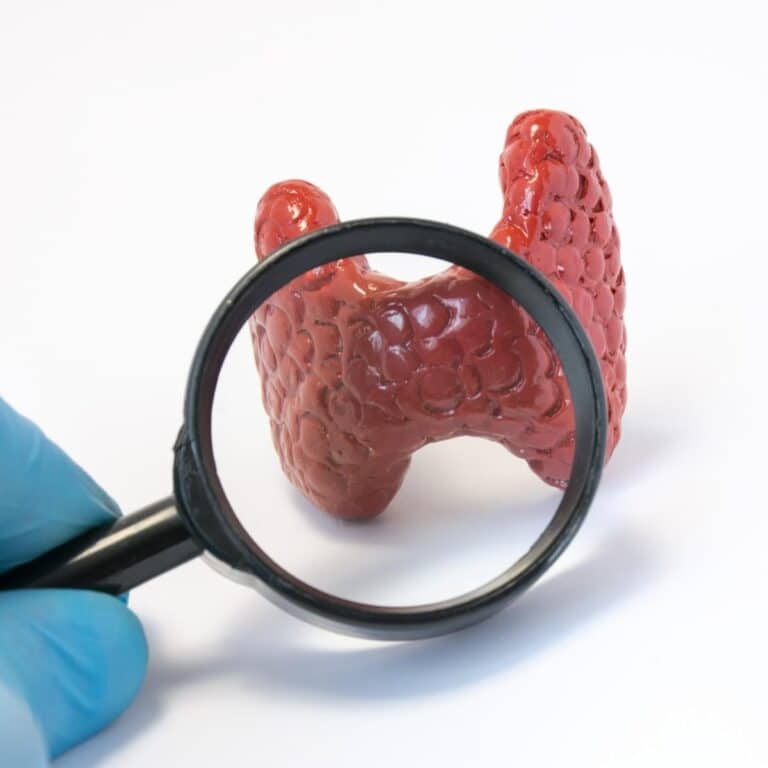
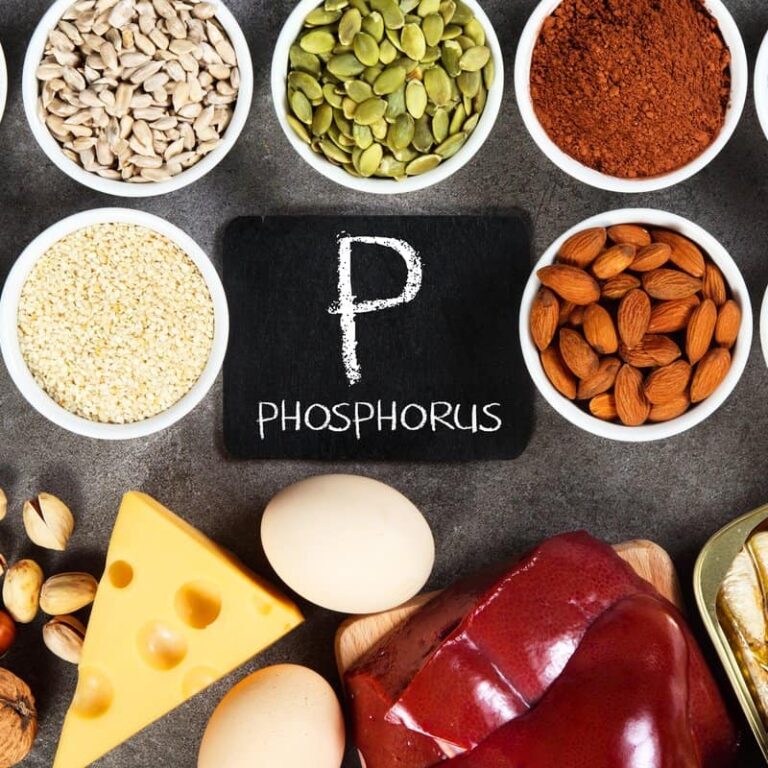

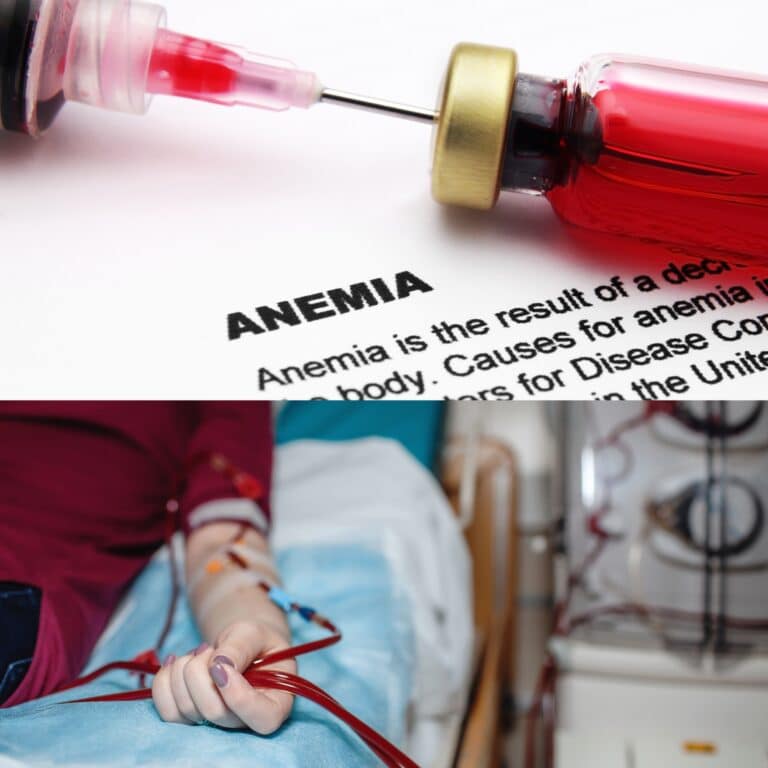

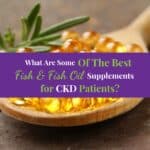


Hi Mathea
I have been taking Omega3 fish oil capsules for many years with no side effects but I notice you said 500mg per day. I have been taking 1000mg per day. Do you think I’m taking too much and should cut it down to 500mg?
Lovely photo